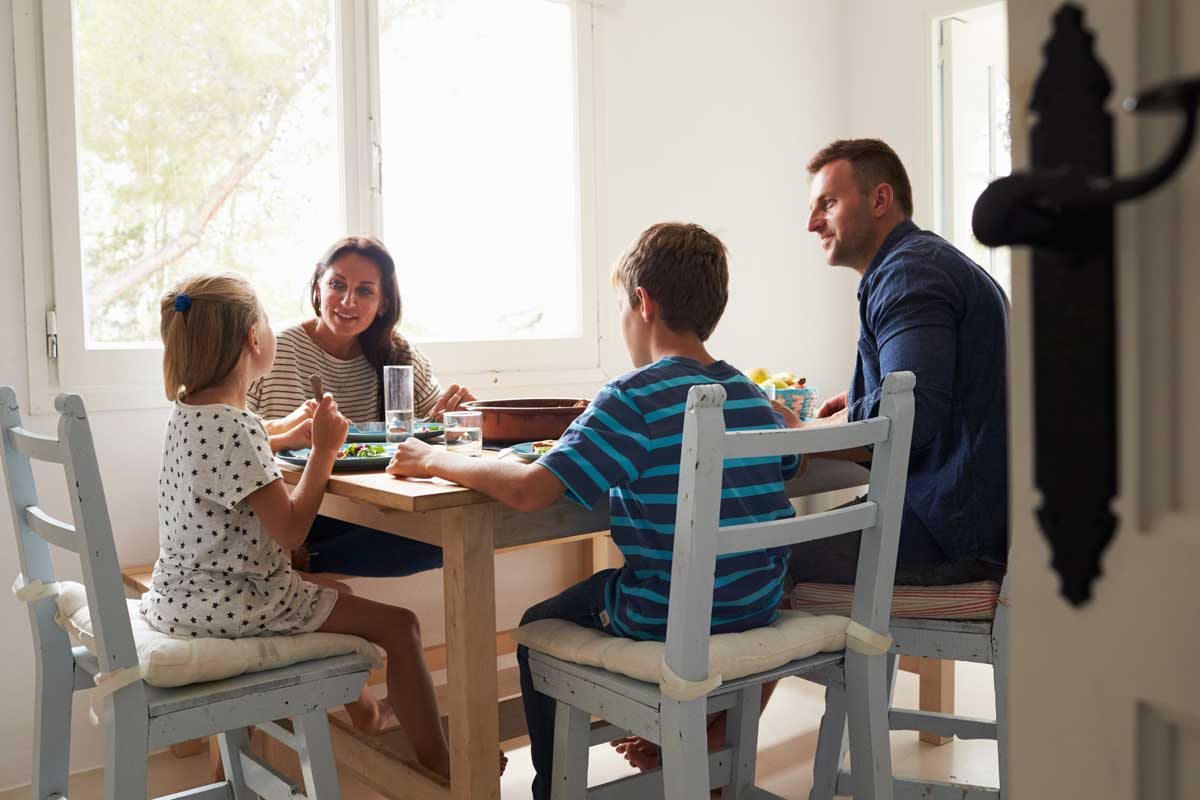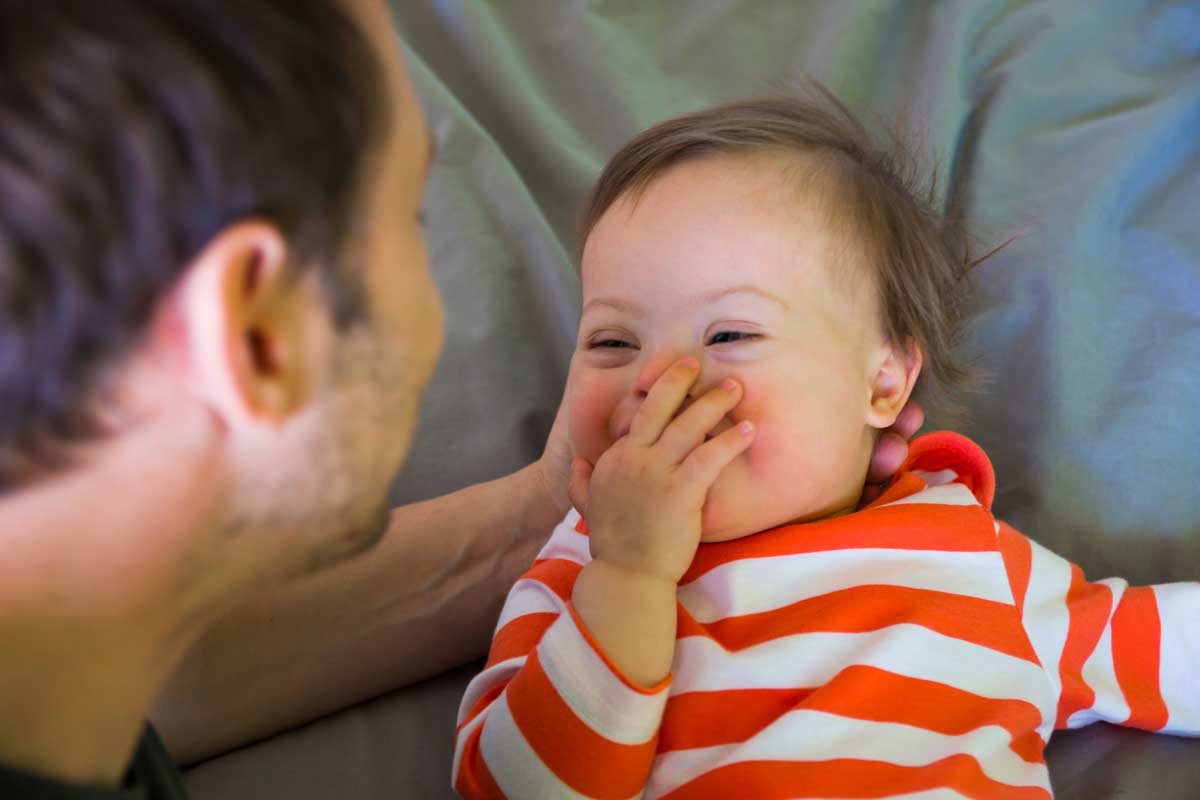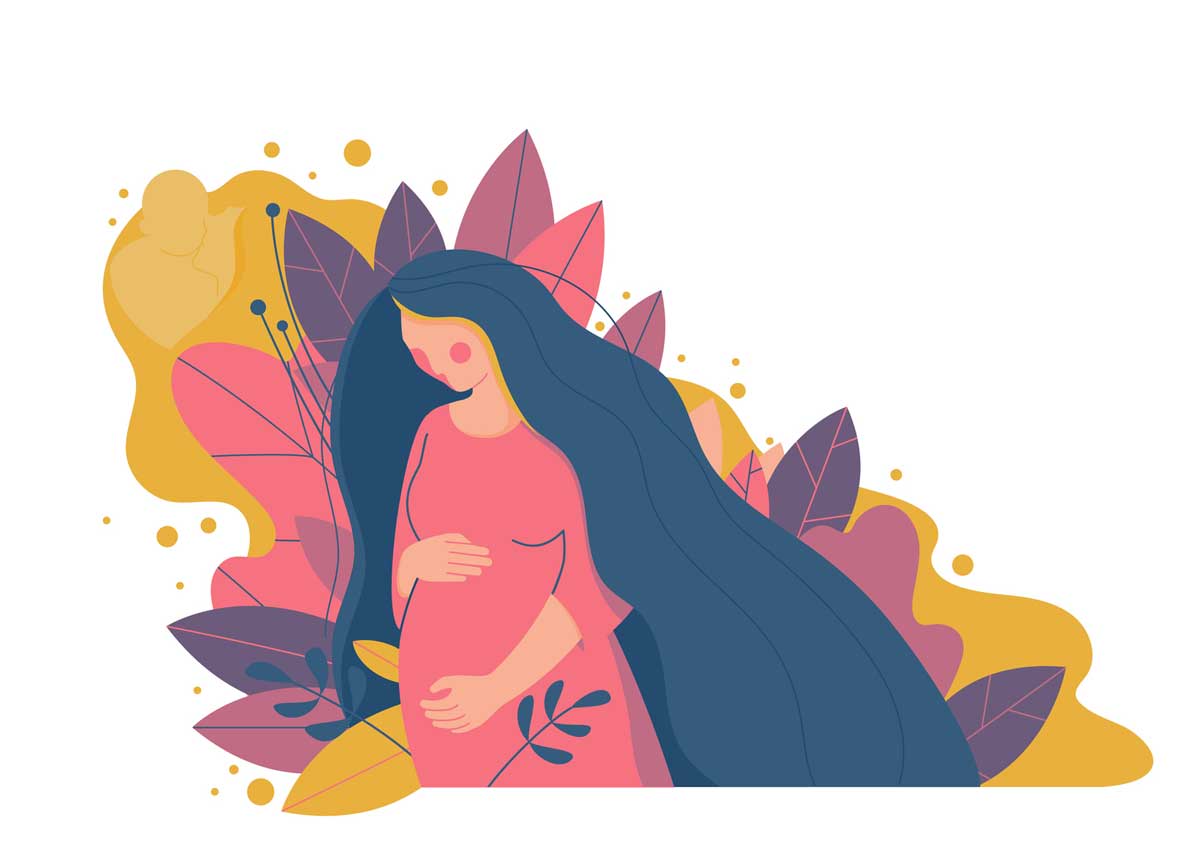View
Happier Meals
Kari Jenson Gold on the Dinner Table as Meeting Place
My friends pour over parenting manuals and devour advice that will guarantee health and happiness for their children. My daughter’s school sponsors parenting lectures and parent discussion groups covering every conceivable issue, and the media feed the frenzy, delighting in the risks and dangers even the most secure children face.
In the space of two weeks, both the New York Times Magazine and the New Yorker carried lengthy pieces about the battle over school lunches. Parents wage war over fat and sugar levels in the cafeteria, and the latest statistics only fuel the anxiety. According to the Times, the obesity rate among adolescents has tripled since 1980, and it is predicted that 40 percent of our children will contract diabetes. Eating disorders are on the rise.
Predictive Dinners
It is all a bit overwhelming and sometimes remarkably silly, but I confess that I, too, read the reports and attend the lectures. And I have, in the last year, repeatedly heard one rather astonishing finding: There appear to be two decisive factors for predicting whether a child will do well in school and avoid early sexual activity or drug and alcohol abuse. They are: (1) participating in a religious life, and (2) eating dinner with the family.
In the lectures and discussion groups I have attended, these are invariably dismissed as two separate, unrelated activities. For many parents (bear in mind that I live in Manhattan), the notion of a religious life is, if not laughable, simply irrelevant.
Most will glide quickly past religion and focus instead on the need to eat dinner together. From there, it is only a matter of time before someone will venture that it’s not really about eating. Surely what’s prescribed is simply “quality time.” Whereupon there is a general nodding of heads and everyone departs feeling much reassured.
That there could be any possible connection between religious life and family dinner never seems to occur to anyone. And yet, as a practicing Christian, I find the connection glaringly obvious. The central event of the Christian life is the Eucharist. The central event of family life is or should be the family dinner.
When, as a congregation, we share the bread and the wine, we are one in Christ. When, as a family, we eat pasta together, we are united.
Eating Well
Burkhard Bilger, the author of the New Yorker piece, waxes nostalgic over his school lunches in France. “We sat at round tables in groups of eight and were served three courses of some of the strangest food I’d ever seen—sautéed squid, boudin noir, rabbit with mustard sauce.” The article makes much of the sorts of foods served, as indeed it should. But a crucial point is overlooked.
The French children ate at “round tables in groups of eight.” In other words, they ate in a civilized manner. Growing up in England, I was served over-cooked roast beef and lumpy mashed potatoes (not to mention a sublime treacle pudding I still yearn for), but there too we ate at tables for eight with teachers at the head. We were expected to converse as well as to fill our stomachs. Put simply, when you talk more, you eat less.
As a nation, we are obsessed with calories, sugars, fats, carbohydrates. But what if the real problem is how we eat, not what we eat? Perhaps if the how were better, a healthier what would follow.
Just as there are rituals that surround the Eucharist, so there ought to be traditions connected to the family meal. The more the better. Plates, glasses, silverware, linens, candles, prayer, manners, conversation, these are the stuff of a family dinner.
Even as the bread and wine are blessed and served from the altar, the family meal deserves an appropriate presentation: on a table, not a couch in front of a television. The table is the crucial connecting object, physically bridging the space between people and directing their attention to each other.
Why is a sit-down dinner more successful than a buffet? The conversation is invariably better, livelier, more intimate, because the guests are physically connected to each other by the table.
So also, the place in which one sits at that table is important. The father sits there; the mother sits there; and you, the child, sit here. When I am a guest in someone’s home, I am always happier when told where to sit. I feel taken care of by the host who has given the matter thought and ordered his table appropriately. Even as the Eucharist locates one’s place in God’s narrative, one’s place at the dinner table indicates a location in the family’s story.
Moreover, when we eat, we should eat slowly, with care, paying attention to what has been cooked. We remember our connection to the land, to animals, to God’s creation.
Kneeling at the altar or sitting down to dinner, we know once again who we are. Our days are given a fundamental coherence that they would not otherwise possess.
Dinner First
Why do our children need a religious life? Why do they need to eat dinner with us? And why are these not two unrelated activities but intimately connected? It is from the traditions of church and family that children learn their identity.
The child who has grown up knowing who he is—a child of God and a child of this family—will not forget it when confronted by the temptations of present-day culture. A secure child will not need to seek outside reassurance from sex, drugs, the Internet, or the mall.
Yet for many of us, religious or not, family dinner is “pie in the sky.” Even if a child is lucky enough to have two parents, the mom is probably working, the dad is flying across the country, and the child has too much homework. No one has time to eat take-out together, much less cook.
That may indeed be the reality with which some of us are currently burdened, but it is a reality we have consciously or unconsciously chosen, and we can decide to choose something else. We must begin by acknowledging the consequences of our choices and stop deluding ourselves that all will be well.
We banish religion from our schools only to discover that religion’s presence in some form or other is the best guarantee of safety for our children. We abandon the nightly family meal only to discover that its absence contributes to a culture of obesity, eating disorders, and kids at risk.
Is it too late? Can we turn the clock back? Why not? We don’t have to serve boudin noir or even treacle pudding. But we do have to decide that dinner together comes first. Before work, before homework. Before soccer practice or the TV or the cell phone.
So light the candles, uncork the wine, pass the bread. Taste. See. Remember.
We come by sin disquieted,
and find our lives made whole.
Around this table we are fed
refreshment for the soul.
Kari Jenson Gold is a writer and an actress who has appeared off-Broadway and in regional theater. Her children's books are used in elementary schools, and her essays have appeared in First Things. She attends Saint Thomas Church on Fifth Avenue and lives in Manhattan with her husband, daughter, and dog.
subscription options
Order
Print/Online Subscription

Get six issues (one year) of Touchstone PLUS full online access including pdf downloads for only $39.95. That's only $3.34 per month!
Order
Online Only
Subscription

Get a one-year full-access subscription to the Touchstone online archives for only $19.95. That's only $1.66 per month!
bulk subscriptions
Order Touchstone subscriptions in bulk and save $10 per sub! Each subscription includes 6 issues of Touchstone plus full online access to touchstonemag.com—including archives, videos, and pdf downloads of recent issues for only $29.95 each! Great for churches or study groups.
Transactions will be processed on a secure server.
more on family from the online archives

31.5—September/October 2018
Errands into the Moral Wilderness
Forms of Christian Family Witness & Renewal by Allan C. Carlson
more from the online archives
calling all readers
Please Donate
"There are magazines worth reading but few worth saving . . . Touchstone is just such a magazine."
—Alice von Hildebrand
"Here we do not concede one square millimeter of territory to falsehood, folly, contemporary sentimentality, or fashion. We speak the truth, and let God be our judge. . . . Touchstone is the one committedly Christian conservative journal."
—Anthony Esolen, Touchstone senior editor












